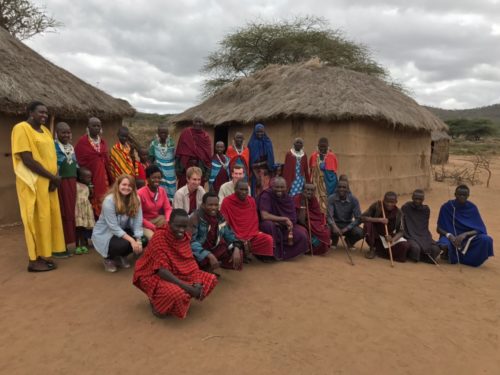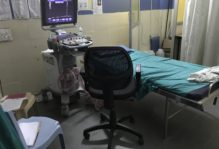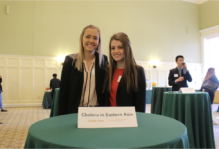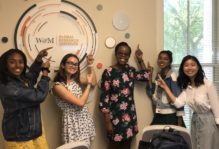Charter Day Remarks: The Future of Knowledge
By Henry Crossman ’19
The best universities do two things well: they create knowledge and they share it with the world. At William & Mary I’ve experienced this in three ways: student-faculty teams, applied knowledge to real world problems and working across disciplines.
I became part of a student-faculty team at the Global Research Institute during my first semester. From day one I learned how to apply classroom knowledge to global issues. One afternoon, I stepped into Professor Tierney’s office for advice, and the next morning I found myself preparing to conduct field research in Tanzania with Professor Roessler for a summer. This is the future of knowledge, student-faculty teams where faculty mentors see the value in investing in undergraduates from the moment they join our community.
Funding from William & Mary’s Global Research Institute’s Innovation Fund, made possible by alumni and friends of the Institute, enabled me to apply knowledge to real world problems. This seed funding also led to later support from the Gates Foundation, allowing the project to scale to become the first large-scale field experiment investigating the impact of mobile phone ownership on women’s economic livelihoods. The findings showed that the mobile phone is one of the most cost-effective poverty reduction tools, but it also revealed that among these low-income women, many did not retain their phones, due to power asymmetries in the household or micro-finance debt.
Equipped with these important results from the field research, Professor Roessler and our local collaborators briefed Tanzanian policymakers. Our briefing directly informed the Tanzanian government as it transitioned its social safety net payments to low-income households from cash to mobile money. Governments are changing their behavior because of the research that starts at William & Mary. This is the future of knowledge, undergraduates doing field research and working with local partners to address real world problems, bringing William & Mary to the world and the world back to William & Mary.
Motivated by my experience in Tanzania, upon my return to campus I helped build a team to compete for funding for an interdisciplinary project of my own, through the Institute’s Shark Tank, working in the fields of agriculture, technology, economics and public policy. Our research group won several thousand dollars to begin to identify barriers to mobile micro-insurance uptake among Kenyan farmers and develop a pilot intervention to improve farmers’ resilience to economic shocks. Combining innovative research with policy entrepreneurship is the future of knowledge, and it happens as soon as you step on campus.
Whether it’s a professor handing me a flyer about an event he knew I wouldn’t want to miss, rubbing elbows with geographers, data scientists, and public health specialists at the Global Research Institute or partnering with faculty to conduct research abroad. This is the future of knowledge — crossing disciplinary boundaries to create and share knowledge with the world.





No comments.
Comments are currently closed. Comments are closed on all posts older than one year, and for those in our archive.